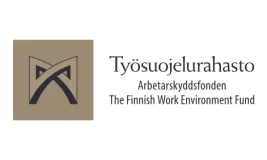SujuKE – improving work flow through cognitive ergonomics – An intervention study
Objectives
The aim of the project is to obtain research evidence on the impact of measures on working conditions, the efficient flow of work, well-being at work and productivity. The study involves organizations whose employees carry out clerical work which highlights the characteristics of information work: information intensity, learning new things and the use of information systems. The SujuKE study is a field trial that examines the effects of cognitive ergonomics by comparing natural groups randomized to the experimental and control groups in a longitudinal study.
The types of work that are becoming increasingly digitalized and automated emphasize the employees’ ability to process information and learn new things. There are also many factors that eat away at the capacity of human data processing: disruptions, interruptions and the influx of information are common in any sector. However, the cognitive or computing abilities of humans are limited. Through cognitive ergonomics, the work is designed in a way that is in line with the abilities and limitations of human data processing, so that the work is smooth, healthy and productive.
Funding
The Finnish Work Environment Fund, participating organizations, Finnish Institute of Occupational Health
Data and methods
In the implementation of the SujuKE project, the Aivotyö toimivaksi method developed by the Finnish Institute of Occupational Health is used to improve the cognitive ergonomics of work and reduce stress. Surveys and interviews are used to discover the cognitive demands of the job as well as obstacles and drivers of efficient work. In research interventions, concrete means are implemented to introduce and consolidate good practices in cognitive ergonomics and stress management at workplaces.
Results and impact
The results of the SujuKE study show which measures of cognitive ergonomics and stress management best facilitate work and improve well-being at work and productivity. The research results can be used in evidence-based management and work development in office and information-intensive work.
As part of the “Aivotyö poikkeusaikana ja sen jälkeen” survey, follow-up surveys will be conducted in 2021 and 2022.
Read the final report of the project (in Finnish)


